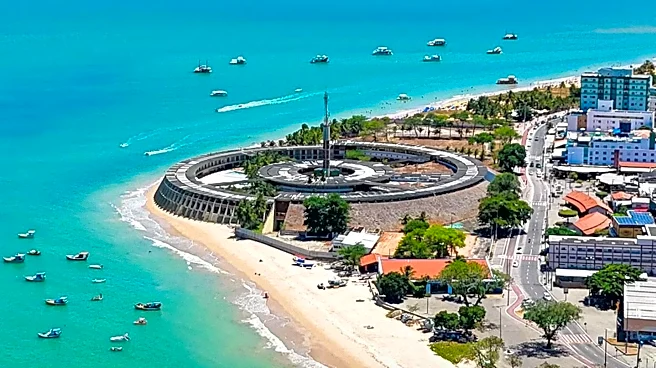What's Happening?
The New York Times has published a travel guide highlighting the cultural and historical significance of Salvador, Brazil. Founded in 1549, Salvador served as Brazil's capital for over 200 years and played
a pivotal role in the transatlantic slave trade. Today, it is recognized as the Blackest metropolis outside of Africa, with a rich tapestry of African-descended cultural traditions. The guide explores Salvador's vibrant music scene, historical architecture, and its contributions to Brazilian culture, including notable figures like musicians Gilberto Gil and Caetano Veloso. The city's unique blend of diasporic religious, musical, and culinary traditions continues to attract visitors and influence Brazil's cultural landscape.
Why It's Important?
Salvador's cultural heritage is a testament to the enduring impact of African traditions in Brazil. As a major hub for the slave trade, the city has shaped the country's cultural identity, contributing significantly to its music, literature, and arts. The New York Times' exploration of Salvador underscores the importance of recognizing and preserving these cultural contributions, which continue to enrich Brazil's national identity. By highlighting Salvador's historical significance and contemporary cultural vibrancy, the guide encourages tourism and fosters a deeper understanding of Brazil's diverse heritage.
What's Next?
Salvador's cultural scene is expected to continue thriving, with ongoing investments in arts institutions and luxury accommodations attracting more visitors. The city's unique blend of historical and contemporary influences will likely inspire further cultural exchanges and collaborations. As Brazil continues to embrace its multicultural identity, Salvador's role as a cultural epicenter will remain pivotal, influencing national and international perceptions of Brazilian culture.
Beyond the Headlines
The exploration of Salvador's cultural richness also raises important discussions about the legacy of the slave trade and its impact on contemporary society. The city's history serves as a reminder of the resilience and creativity of African-descended communities, highlighting the need for continued efforts to address historical injustices and promote cultural inclusivity.










